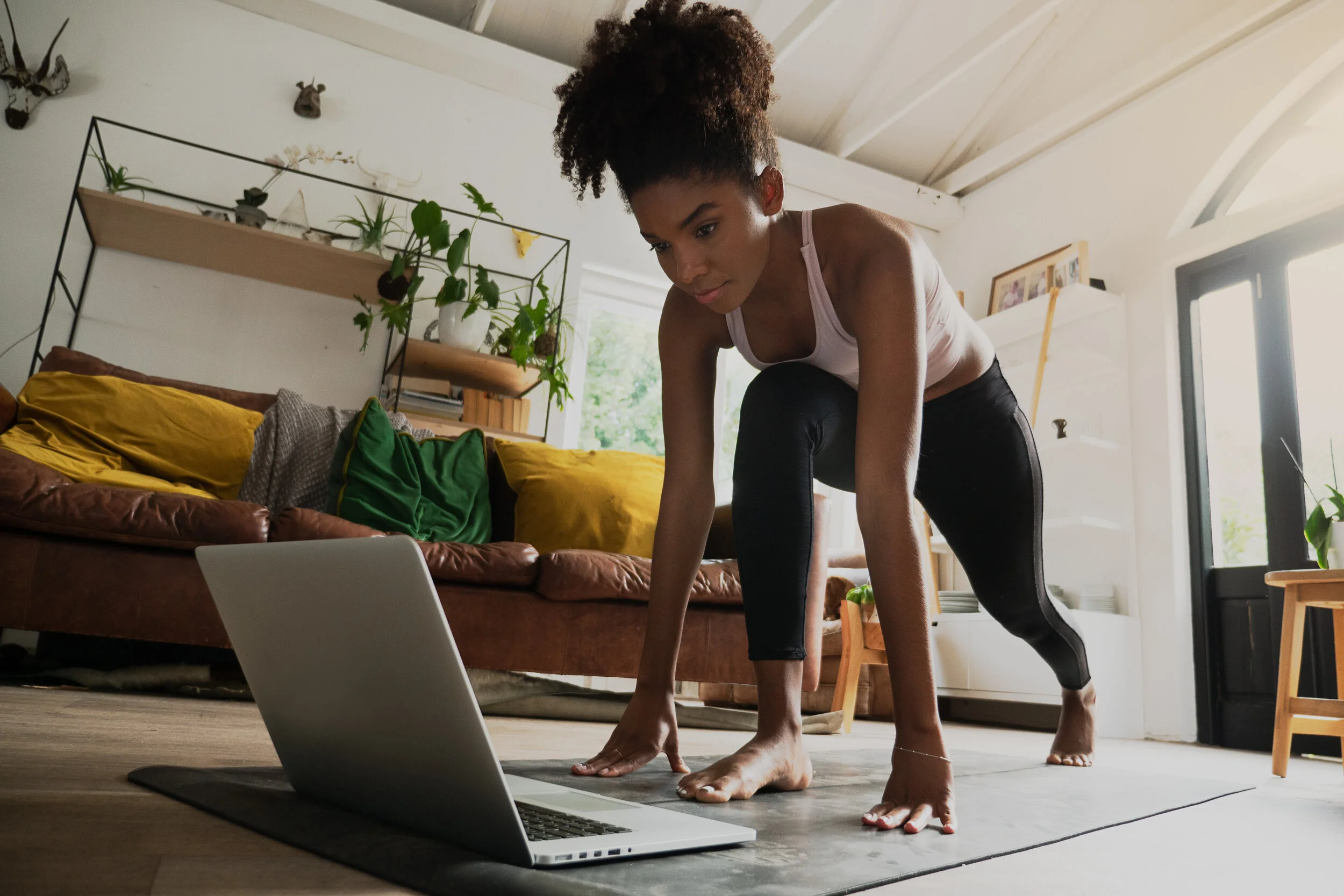Why is it hard to Keep Healthy Habits during a Pandemic?
It almost sounds laughable as I type it. A pandemic the world has not seen before is changing every part of our daily lives. But do we still expect ourselves to keep our healthy habits unwavering and strong?
I am a physical therapist and Pilates teacher, with over 35 years of working with clients. My undergraduate degree is in exercise physiology/physical education. I have studied and taught fitness and health my whole life. My job is health coaching and I have been doing that for a long time.
Part of coaching involves understanding what motivates my clients -- in other words, what is their goal? For example, it may be:
"Be able to chase after my grandchildren without knee pain.”
"Look great in my wedding dress.”
"Drop 10 pounds for my school reunion.”
"Feel more connected to my core post childbearing.”
“Be able to work without back pain.”
So why then, even with very clear motivation, are healthy habits so hard to maintain during COVID-19? I have been struck lately with a common complaint from my clients: "I am having a harder time than usual sticking with the plan." I feel it too. We are stress eating and having more cocktails. We have more time in our day since working from home and not having a commute, but are not exercising with that new-found time. Maybe our gym or pool or favorite trail was closed, or maybe we just don’t feel like getting our regular exercise. Maybe we are just grieving the loss of a pre-COVID world?
Struggling to Maintain Healthy Habits?
I thought I would do a little reading research and unpack this thought, “Why is it so hard to keep our healthy habits during a pandemic?”
Habits are built on familiar structures and routine
According to researchers at Duke University, our habits comprise up to 40% of our everyday lives and ensure that we do not have to think about every single action we take throughout our days. But what happens during a pandemic? Now, we have to think and think hard before moving through our day, for example: “Don’t touch the shopping cart without wiping it with disinfectant. “Don’t blow out the birthday candles on the cake” or “Don’t leave home without your mask.” We are working overtime to try and determine the safest, healthiest way to live and that necessitates changing our habits.
Lack of Routine/Change of Habits
When I am on vacation, having a nice al fresco lunch at a restaurant with my husband, I might have a lovely glass of wine. But at home, on a workday?! Not until last March! Not working while I closed my office felt weirdly like a vacation. Why not have a glass of wine with lunch? Nothing is normal anymore! We don’t have much routine and therefore our habits are tossed out.
Having to Make Many Changes
If we were trying to adopt a healthier lifestyle, in order to make lasting changes, we would be reasonable and make one change at a time. But in 2020, we had to make many, many changes in our lifestyle, and not by choice.
No Predictability
Missteps don’t usually derail a solid goal, as long as you can get back on track with your actions toward that goal. How easy or difficult has it been for most of us to get back on track when the track is unpredictable, unknowable, or completely missing?
Not Dressing for Success
If we are in the habit of dressing for the office or the gym, our mindset prepares us for success there. If we are not getting dressed for the task, neither is our mindset. And wearing nothing but elastic waist pants isn’t helping.
Forced to multi-task
Research shows that trying to do more than one thing at a time actually hurts productivity, and yet, we are having to manage households and altered schedules (no school, camps, after-school sports, more bodies in our households all day). I remember having a newborn and having plans to be SO productive during naptime and maternity leave in general. My workdays were scheduled and predictable, why not parenthood? Ha! I had a kid who was a lousy sleeper and had his own designs on my productivity!
Our timing is off
We know what time of day is best for us to be productive at work or to have a great workout, but with changing demands of work and home (what time of day should I go shopping and be able to score TP?! When is the spare bedroom available for a confidential Zoom meeting?), our timing now has to be more fluid.
Hit with bad news
Positive thoughts and appreciating silver linings help us be healthier and more productive, but it is hard to remain positive when COVID stats keep going up, or yet another vacation plan is scuttled, or you have lost your job and health insurance. I could go on, but it wouldn’t be helpful.
Your Pandemic Health Tool Box
So now that we have identified why we have struggled with some of our healthy habits, let’s bring this back to what we CAN DO to re-set. We need to establish a new pandemic health toolbox:
1. Remember Your Long-Term Plans
Panic eating comfort foods may have soothed us at first, but recognize that you really don’t want this to be a new normal for you. We are in this situation for a while. Recognize that stress eating is not something you chose for the long haul.
2. Make Positive News Your Priority
Prioritize the positive when on Social Media: visit sites that encourage you to live in your best healthy habits (healthy recipes, on-line Pilates or Yoga classes, walking trackers), and family and friend connections. Don’t read COVID stats before bedtime. Ditto negative political sites.
3. Create a New Routine
Create a new routine and try to stick to it, even if it has to be flexible. Stick to your normal bedtime and time you get out of bed. Get enough sleep. This is one of the most important things you can do to support your immune system.
Instead of attending a 7 am Pilates class at the studio, make a goal of attending a Zoom class sometime in the morning, or even anytime during the day that works out.
Use reminders (apps, sticky notes, your kids) to support healthy habits: drinking enough water, get up and move, connect with a friend.
Keep your days straight by deciding to only have alcohol on weekends.
4. Get Exercise
Having a schedule (#3 above) helps, but so does a partner to walk with, a new playlist, or a reward for exercising, like cordless headphones.
If all else fails, put some dance music on and shake your booty!
5. Be Mindful of Your Mindset
Be gentle with yourself. These are very trying times. Be reasonable with your goals. Keeping your pre-COVID fitness routine or your productivity expectations may not be possible -- at least, not yet
6. Don't Go It Alone
Being cooped up and isolated is a health risk of its own.
Take some time to connect with those you love, and who love you. Don’t be afraid to express frustrations or grieve the many losses we are faced with, and listen in return.
Use technology for human connections: take a Pilates class with that teacher you loved while on vacation in Whistler (she is likely to be teaching online and would love to see you!), or have a regular date with family members or friends.
Reframe “social distancing” as “physical distancing” – socialize responsibly and healthfully by wearing a mask and keeping 6 feet. Have your book group or friends over in your backyard with everyone B.Y.O. food, drink, utensils, and a mask handy if you need to use the facilities (put the toilet lid down before you flush!). Meet a friend for a hike, maintaining plenty of distance, and having a mask handy for when you can’t.
7. Reach Out for Help
Lastly, reach out for help. I am here for you, and I will be gentle with you too.
Stay well!
Kathleen McDonough
PT, MA, NCPT Physical Therapist &Nationally Certified Pilates TeacherMarin County


